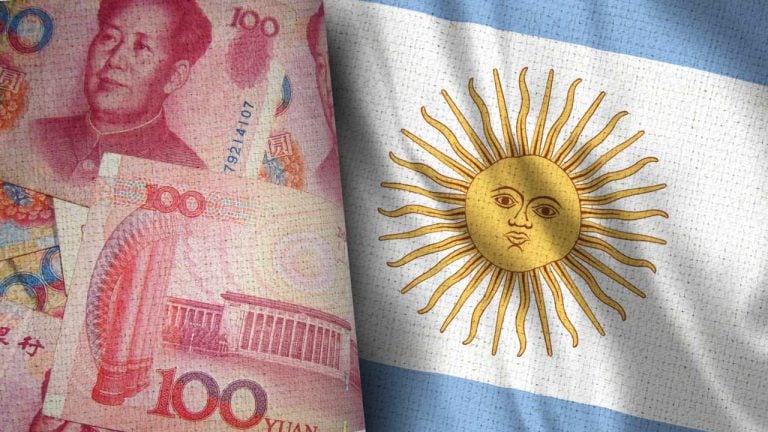
The central bank of Argentina has officially included the Chinese yuan as a recognized currency for making deposits in bank accounts. “Opening yuan accounts could attract more people and enterprises to exchange Argentinian peso to yuan, as more or less a ‘safe haven’ currency, instead of exchanging all of their local currency to U.S. dollars,” an economist explained.
Banks in Argentina Now Authorized to Open Yuan Accounts
Argentina’s central bank announced Thursday that it is now allowing Chinese yuan in bank accounts. The announcement states (translated by Google):
The Central Bank of the Argentine Republic has incorporated the renminbi yuan as an accepted currency for deposit-taking in savings banks and checking accounts. Financial entities will thus be enabled to open bank accounts denominated in renminbi yuan.
The decision by Argentina’s central bank to incorporate the Chinese yuan aligns with the country’s struggle against a dwindling supply of U.S. dollars. The move also coincides with China’s ongoing efforts to promote the internationalization of its currency.
In addition, Argentina’s National Securities Commission announced in June that it would allow dealing in renminbi-denominated securities. Earlier this month, China’s central bank, the People’s Bank of China (PBOC), and Argentina’s Central Bank signed an agreement for a 130 billion yuan ($17.9 billion) bilateral currency swap over three years.
BBVA Research’s senior China economist, Dong Jinyue, was quoted by the South China Morning Post as saying:
Opening yuan accounts could attract more people and enterprises to exchange Argentinian peso to yuan, as more or less a ‘safe haven’ currency, instead of exchanging all of their local currency to U.S. dollars.
“The diversification of foreign currency exchange will surely help alleviate the US dollar shortage in Argentina because US dollars become not the only foreign currency to exchange,” he opined.
Stephen Olson, a senior research fellow at the Hinrich Foundation, described:
Given rising geopolitical tensions, China is growing increasingly uncomfortable with the pre-eminent role of the U.S. dollar in conducting international trade.
Some people believe that the Chinese yuan has the potential to erode the dominance of the U.S. dollar in global financial markets, including TD economist Vikram Rai. Russia’s VTB Bank Chairman Andrey Kostin, who is sanctioned by the U.S., said in May that the Chinese yuan could replace the U.S. dollar as the world’s main reserve and settlement currency as early as the next decade. In addition, many people expect a proposed common BRICS currency to challenge the USD’s hegemony.
What do you think about Argentina’s central bank allowing banks to open accounts in Chinese yuan? Let us know in the comments section below.
#Economics, #Argentina, #ArgentinaChina, #ArgentinaDedollarization, #ArgentinaYuanBankAccounts, #Dedollarization